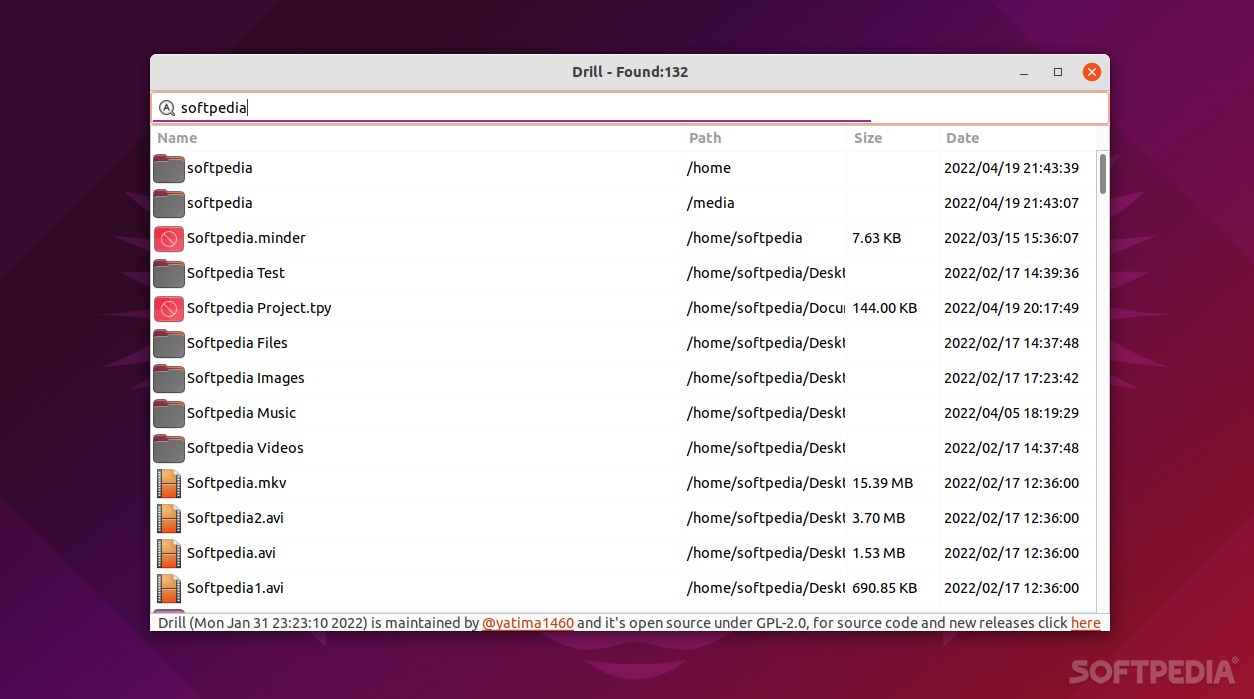

One could argue that modern OSes have pretty good, default file search tools or engines, and the assumption might very well be correct, especially for the large majority of users.
“Search files without indexing, but clever crawling” – this is the official description of Drill, an innovative and modern file searcher for Linux (and Windows) that tries to solve the problem of most file search utilities out there: slow searching and indexing.
How does Drill go by achieving this? In short, it uses the full multithread power and all available RAM resources of your computer to get the job done as fast and as efficiently as possible.
Performance-oriented, but still easy to use
Here’s what you need to know about the app before using it. It’s available in two forms: GUI and CLI. It uses at least 1 thread per mount point, and we already mentioned that it uses as much RAM as possible for caching data.
It uses priority lists, meaning that it first scans (and displays) important folders. Last but not least, it is optimized for SSDs/M.2 and fast RAID arrays.
Be that as it may, Drill is still a tool designed for the average user. While the GUI doesn’t exactly have royal status in terms of looks, it gets the job done nicely. Oh, and no obscure Linux files and system files are included in the scans.
The philosophy behind Drill
Drill was desgined with the idea that nowadays the large majority of computers use SSDs to store their data, and a mininimum of 8GB of RAM and quad-core CPUs.
What does that mean? Simply put, Drill is not an app that cares about old computers or slow computers. It’s main job is to deliver the fastest possible file search out there, at the expense of your computer’s resources (an “unused RAM is wasted RAM” type of deal).
Regarding the clever multithreading, Drill was designed because most file search tools dont start a thread per disk. In short, the limitation of the large majority of file searchers out there is the disk speed, and not the CPU and RAM.
Verdict
Drill is without a doubt a very interesting project, that somewhat breaks the mold when it comes to searching for files on your Linux system.
Sure, it’s an app that bets on the future and doesn’t look at the past (hence its continuous optimization for SDDs/M.2 and RAID systems), and that’s really refreshing to see. More information about the project and information regarding installation, building, and future features can be found on Drill’s official GitHub repository.
